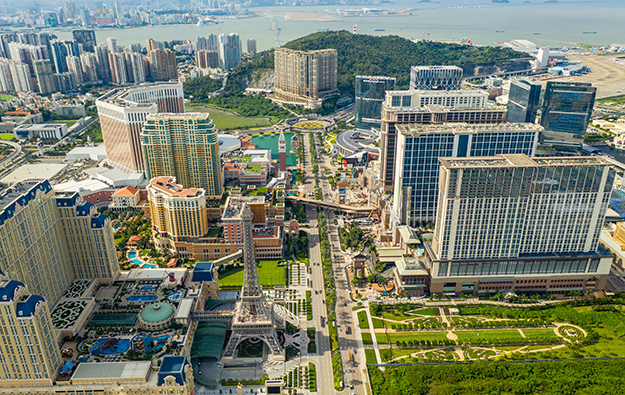Given China’s stance on gambling, it is surprising that after 1999, Macau became the biggest gambling market in the world. Or perhaps not…
Macau Business | October 2024 | Special Report | PRC at 75: China’s contributions to the world
Throughout this special report, we have highlighted the PRC’s ability, over the past 75 years, to demonstrate pragmatism (in contrast to the expected ideological dogmatism) and adapt in adverse contexts. Take, for instance, the situation with games of chance in Macau: until 1999, gambling decisions were made by the Portuguese administration. However, historians note that during the handover negotiations and the meetings of the so-called Liaison Group, there was no significant Chinese opposition to maintaining the status quo from 2000 onwards.
There are two types of countries that prohibit gambling: those that do so for religious reasons (generally Muslim countries) and those driven by ideological reasons. In the latter group, China clearly stands out. For Beijing, gambling is seen as a kind of enemy. It can lead to crime, addiction, and family disintegration (everyone in China knows a story about an ancestor or neighbour who got into trouble with gambling) or pose risks to political control. In addition to being seen as potentially destabilising, gambling activities can contribute to money laundering and corruption, one of Xi Jinping’s major concerns.
In what is one of the great contemporary ironies—and yet another testament to China’s ability to ‘bend without breaking’—the PRC not only agreed to maintain gambling in Macau after 1999 but even to enhance it, with the liberalisation authorised by Beijing in 2001.The results of this gamble were that by 2006 [the first casino of the new era only opened in 2004], Macau surpassed the Las Vegas Strip to become the world’s largest gambling centre, as measured by total gambling revenue. At its peak, before the COVID-19 pandemic, Macau generated approximately seven times more revenue than Las Vegas. In 2019, for example, Macau raised around USD 36 billion, compared to the Nevada city’s USD 6.6 billion.
“The biggest and most profitable casinos in the world are… in China’s Macau where multiculturalism, casino capitalism, social welfarism and economic prosperity and pragmatism are all nicely and uniquely combined together to constitute a special pearl unfounded anywhere in other parts of the world” – Sonny Lo
The explanation for these staggering numbers lies in Chinese citizens’ appetite for gambling—even if it’s just mahjong. It is therefore no surprise that the overwhelming majority of customers at Macau’s large casinos come from the mainland. Only recently, spurred on by the pandemic’s impact on tourist traffic, have the Macau authorities—under pressure from top PRC officials—begun to speak about diversifying revenue streams and reducing reliance on gambling. While the economy will continue to be tourism-based, there are now efforts to explore alternatives such as finance and technology.
In other words, while the PRC disapproves of gambling, Macau remains an exception. This is why, over the past 15 years, some of the largest casinos in the world have been built in Macau, most notably the Venetian Macao. Since 2007, it has held the title of the world’s largest casino, with a total gaming floor area of approximately 51,000 square metres, 3,400 slot machines, and more than 800 gaming tables. It is also one of the most profitable.
Until 2049, it is highly likely that Macau will continue to be the largest gambling market in the world. However, what will happen after that is anyone’s guess. The last set of licences granted is valid for 10 years, meaning that nothing significant is expected to change before the end of 2032. Whatever the next steps may be, they will be scrutinised closely and will undoubtedly have consequences.

The numbers
The Venetian Macao remained the largest casino in the world, in terms of total gaming floor area (approximately 51,000 square meters, 3,400 slot machines and more than 800 gaming tables and one of the most profitable
